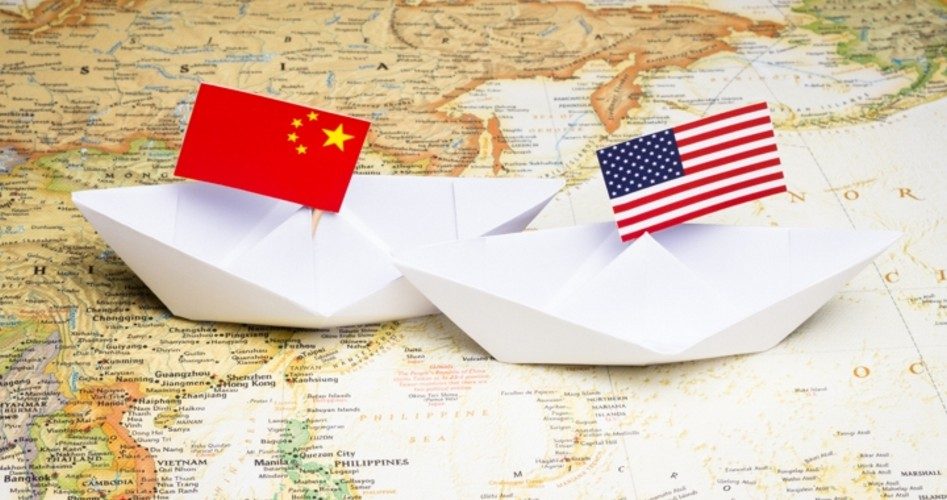
At a conference hosted by the Chinese communist party-affiliated Global Times in Beijing on December 8, Chinese government and military officials discussed conflicts in the South China Sea and the state of relations between the United States and China.
The Global Times quoted People’s Liberation Army (PLA) Air Force Colonel Commandant Dai Xu, who is president of the Institute of Marine Safety and Cooperation. “If the U.S. warships break into Chinese waters again, I suggest that two warships should be sent: one to stop it, and another one to ram it…. In our territorial waters, we won’t allow US warships to create disturbance,” he said.
Referring to the Freedom of Navigation Operations (FONOPs) regularly being conducted by the United States in the South China Sea, Dai said he could not understand why people in China were afraid of using military force to counter U.S. FONOP activity.
Whether Dai believes his propaganda or not, the fact remains that the Chinese “territorial waters” he refers to — near the disputed Spratly Islands — are not recognized as such by nations other than China. In an October report, we cited a statement from a U.S. defense official who said the “guided-missile destroyer USS Decatur (DDG 73) conducted a freedom of navigation operation in the South China Sea [on September 30] to uphold the rights and freedoms of all states under international law. Decatur sailed within 12 nautical miles of Gaven and Johnson Reefs in the Spratly Islands.”
Countries that presently have claims to the Spratly Islands are Brunei, mainland (Communist) China, Malaysia, the Philippines, the Republic of China (Taiwan), and Vietnam. Only China (PRC), Taiwan (ROC), and Vietnam have made claims based on their historical presence in the islands, but the Philippines has claimed part of the area as its territory under the United Nations Convention on the Law of the Sea (UNCLOS) agreement, parts of which have been ratified by all of the countries involved in the dispute.
With so many nations claiming parts of the South China Sea, it is hard to take Dai’s saber-rattling rhetoric seriously. China is heavily invested in lucrative trade deals with all of the competing claimants and is unlikely to jeopardize those relationships by taking military action to settle who is allowed to sail through waters regarded by most of the world as international territory.
Image: pengpeng via iStock / Getty Images Plus
Related articles:
U.S. Ship Sails Near Disputed South China Sea Islands in “Freedom of Navigation” Operation
Japan Conducts Submarine Drill Near Chinese-occupied Islands
U.S. and Chinese Carrier Groups Simultaneously Patrol South China Sea
U.S.-China War “Inevitable” If U.S. Continues Flights Over Claimed Islands



